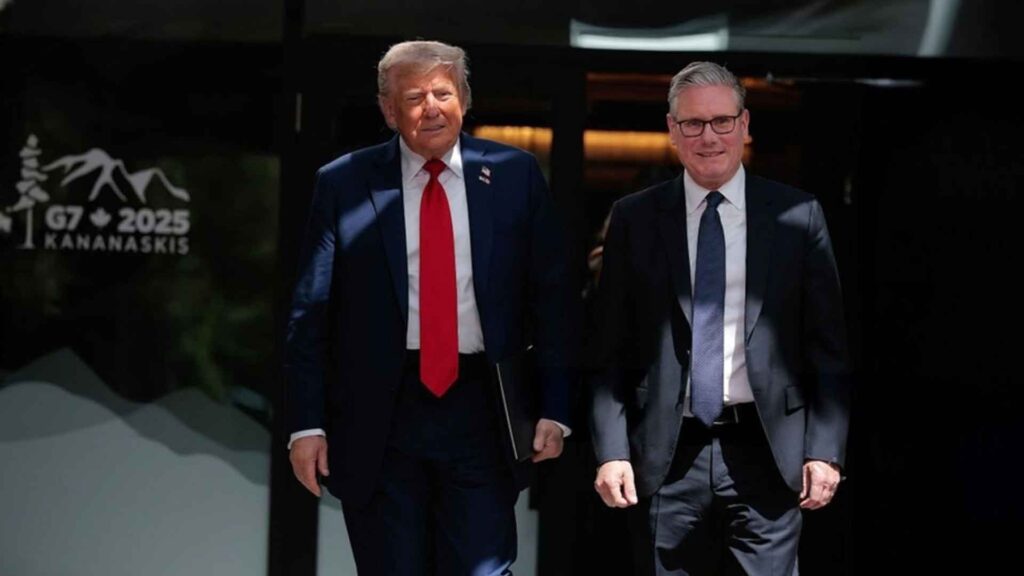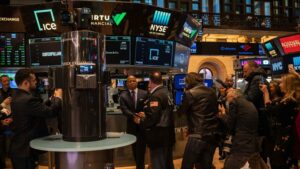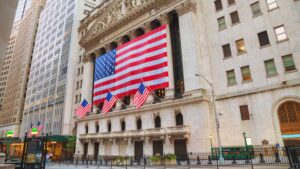The United Kingdom and the United States have signed a “Tech Prosperity Deal” during President Trump’s second visit to the UK.
The agreement is aimed at strengthening ties in AI and quantum computing, reaching investment commitments worth over $40 billion from US tech leaders. Hosted by King Charles at Windsor Castle, the deals indicate a new era in economic and technological ties between the US and the UK.
New Era of Tech Collaboration
The Tech Prosperity Deal highlights the use of advanced technologies with collaboration from US and UK tech leaders. The collaboration promotes the development of AI tools for healthcare and expands quantum computing. Both nations expect the pact to boost economic growth, improve scientific research and energy security. ⁽¹⁾
UK Prime Minister Kier Starmer described the deal as a turning point for the economic ties of both nations, with the potential to shape the future of millions across the Atlantic. The US, which is already the UK’s largest trading partner sees this opportunity to boost US tech presence in Britain while maintaining its role as a trusted partner. ⁽²⁾
Breaking Down Investments in AI and Infrastructure
The deal has contributed to massive investment pledges from US tech leaders amounting to over $40 billion. ⁽³⁾
- Microsoft has announced a £22 billion ($30 billion) investment by 2028 to expand its cloud and AI infrastructure.
- Nvidia has pledged £11 billion ($15 billion) to deploy the use of 120,000 Blackwell GPU chips in the UK.
- Google has pledged £5 billion ($6.8 billion) for the opening of a new data center near London to provide AI-powered services due to their high demand. The investment pledge could also create around 8,000 jobs annually in the UK.
- OpenAI will deploy the use of 8,000 GPUs for its Stargate project in Newcastle, aiming to boost AI adoption in the UK
- Salesforce increased its investments in the UK to £4.4 billion ($6 billion) to support its AI and cloud infrastructure.
UK Economic and Political Challenges
UK Prime Minister Starmer remains under pressure to support economic growth, which continues to remain sluggish. Business confidence has been hurt due to recent tax hikes and a house tax scandal that involved former Deputy Prime Minister Rayner, causing changes in the government cabinet. The Tech Prosperity Deal could boost morale and attract more investments. ⁽⁴⁾
However, challenges persist. The UK steel industry, a sector that exports goods worth £370 million ($505 million) to the US, still faces a 25% tariff rate under the existing trade deal that was made back in May. Zero tariff rates were considered but hopes faded. ⁽⁵⁾
Broader Investment and Energy Partnerships
Beyond tech, the deal also brought investments from other sectors. Pharmaceutical titan GSK pledged an investment of $30 billion for five years for US research, manufacturing and AI-driven biopharma facilities, indicating a trend of global firms investing in the US under Trump’s push for domestic production. In the UK, energy partnerships, particularly in nuclear power, were highlighted as part of a “golden age” for collaboration. ⁽⁶⁾
Companies like Alphabet and Blackrock are set to make multi-billion dollar deals with the UK, supporting its economic prospects. These investment pledges indicate the UK’s efforts to improve its relations with the US, especially after securing a trade deal back in May, with a tariff rate of 10%. ⁽⁷⁾
Possible Confidence Boost for the UK
President Trump’s UK visit and continuing discussions with Prime Minister Starmer indicates a diplomatic and economic benefit for the UK. The Tech Prosperity Deal, alongside investments from other sectors could signal an improvement in confidence for Britain’s future. For Starmer, Trump’s visit is an opportunity to improve stability in the prime minister’s leadership and revive the UK’s attractive destination for global investments.
As the UK continues to encounter challenges, the success of the deal with the US could depend on its ability to use these investment pledges to improve economic growth.



